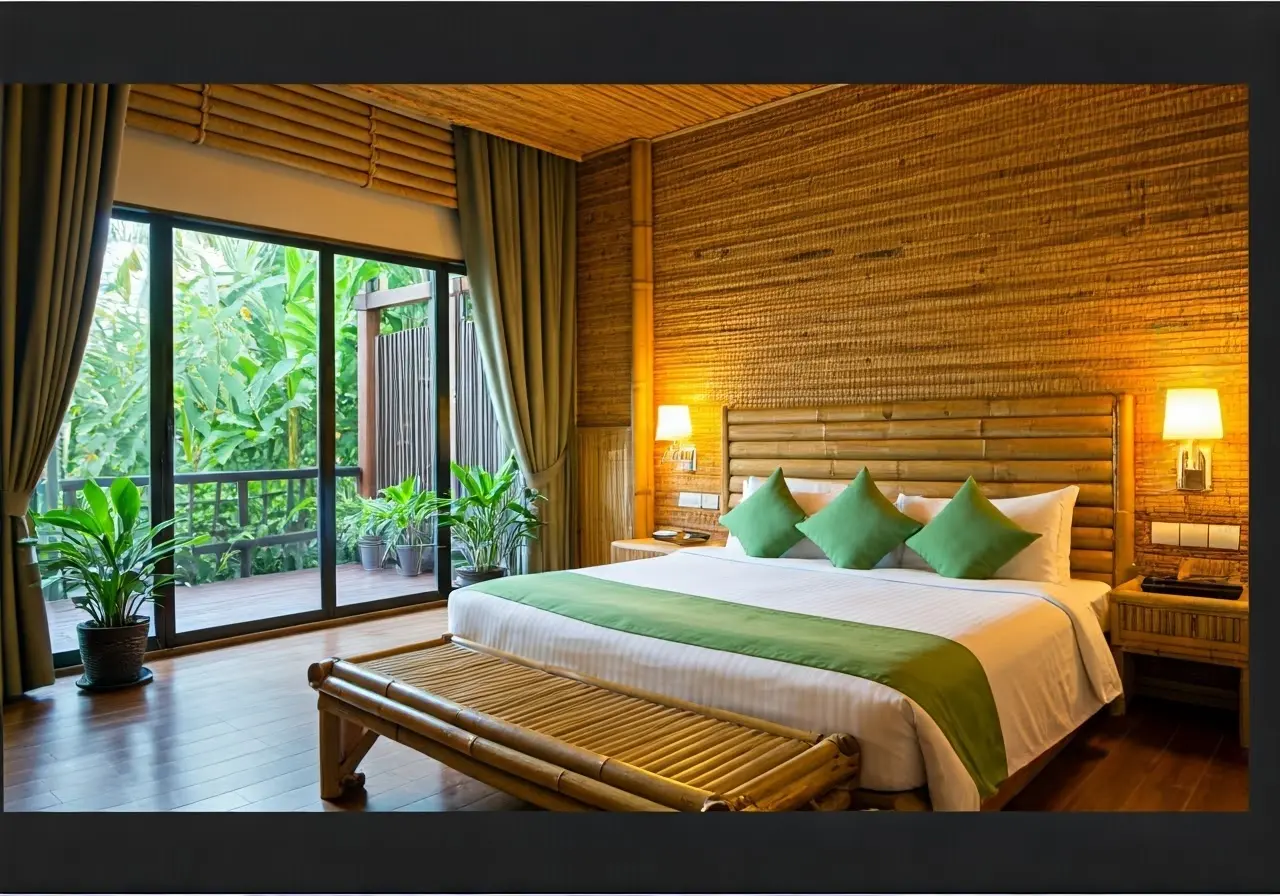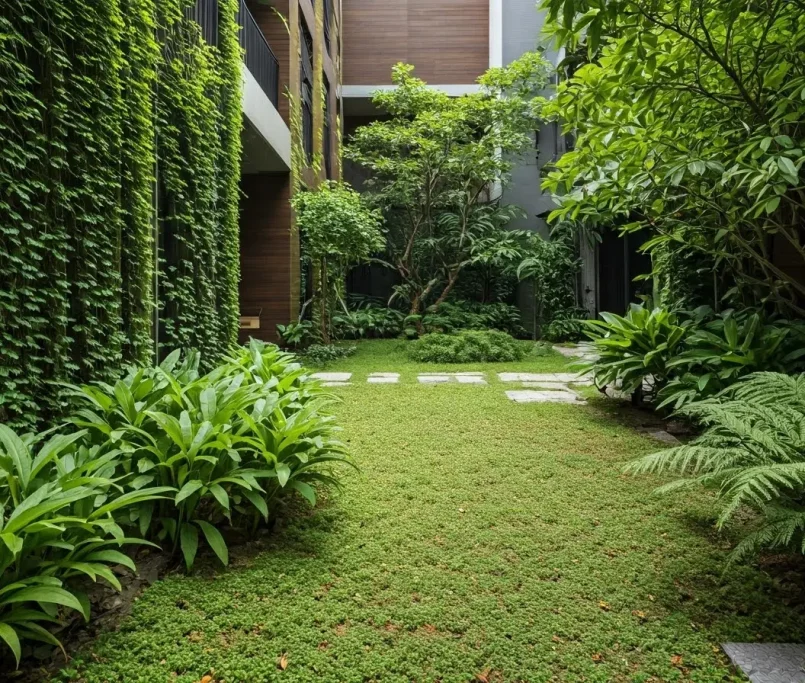Sustainable Choices in Modern Hotel Design
Sustainability is rapidly becoming a foundational principle in modern hotel design, driven by an increasing awareness of environmental impact and the demand for eco-friendly alternatives from travelers. This blog explores how hotels can integrate sustainable choices into their design, balancing comfort and luxury with environmental responsibility.
Understanding the Importance of Sustainability in Hotel Design
With the growing awareness of climate change, the hospitality industry is recognizing the need to build and operate hotels that are both comfortable and sustainable. This shift is no longer optional but essential for reducing environmental impact. Research highlights that guests increasingly prefer hotels with sustainable practices in place, shifting consumer demand in favor of environmentally responsible hotels 1. This section delves into why sustainability is essential and the benefits it brings to both the environment and business operations.
The landscape of hospitality is perpetually evolving, merging tradition with innovation in ways we have only begun to imagine. Sustainability is at the forefront of these changes, redefining luxury and comfort. The emphasis on eco-friendly practices is leading architects and designers to adopt green building practices, from biophilic design elements to energy-efficient systems 2. As hotels embrace this transition to sustainability, they not only reduce their carbon footprints but also enhance their brand image and operational efficiency.
Incorporating Renewable Energy Sources
Modern hotels are increasingly turning to renewable energy sources like solar, wind, and geothermal systems to minimize carbon footprint. Integrating these technologies can drastically cut down energy consumption and operational costs. The combination of renewable energy and energy-efficient architecture allows hotels to achieve long-term savings while promoting an eco-friendly reputation 1.
Harnessing renewable energy also offers opportunities for innovation within hotel design. For instance, incorporating solar panels into the architecture seamlessly integrates sustainability with style 2. The utilization of natural resources, like geothermal heating, not only conserves energy but also provides a comfortable environment for guests throughout the year, illustrating how sustainable energy solutions are paving the way for the future of hospitality.
Choosing Eco-Friendly Building Materials
The choice of building materials plays a pivotal role in sustainable hotel design. Selecting recycled, locally sourced, and non-toxic materials significantly reduces a hotel’s carbon footprint. These materials contribute to both the aesthetic and longevity of modern hotels, crafting spaces that align with nature’s elegance 1.
Incorporating sustainable materials extends beyond the fundamental structure. The use of reclaimed wood, bamboo, and recycled metals in furniture and decor not only maintains an eco-friendly approach but also ensures healthier indoor air quality. By prioritizing such materials, hotels can establish themselves as eco-conscious entities that visitors respect and cherish 1.
Designing for Water Conservation
Water conservation is a critical aspect of sustainable hotel design. Implementing systems like low-flow fixtures and greywater recycling limit water wastage, crucial in regions facing water scarcity. Advanced solutions such as rainwater harvesting provide sustainable options for non-potable purposes, like irrigation and toilet flushing, marking significant advances in sustainable resource management 1.
Enhancing Guest Experience with Sustainable Practices
Beyond operations, sustainability extends to the guest experience. Hotels that incorporate eco-friendly amenities, biophilic designs, and locally inspired decor create a meaningful and enriching stay for visitors, attracting eco-conscious travelers 2. By offering workshops and tours that educate guests about sustainable practices, hotels can further engage them and highlight their commitment to the environment 1.
Creating an immersive experience through sustainable practices not only aligns guests with the hotel’s core values but fosters loyalty and repeat visits. As guests become increasingly aware of their environmental footprint, the demand for eco-friendly travel experiences grows. Hotels that reflect these values in their design and operation hold a competitive edge, ensuring long-term success in the sustainable travel industry 1.
Embracing Sustainability for Long-Term Success
Incorporating sustainable choices in hotel design is not just a trend but a necessity for the future. By focusing on renewable energy, green building materials, and water conservation, hotels can significantly reduce their environmental impact. These efforts not only benefit the planet but also enhance the guest experience, contributing to an eco-conscious reputation and long-term success.











